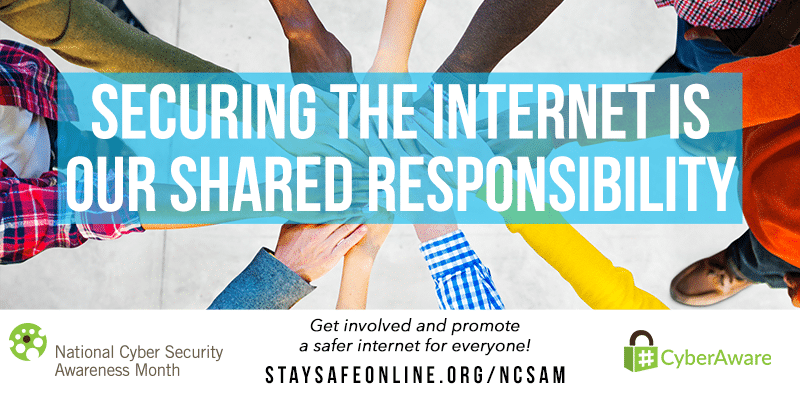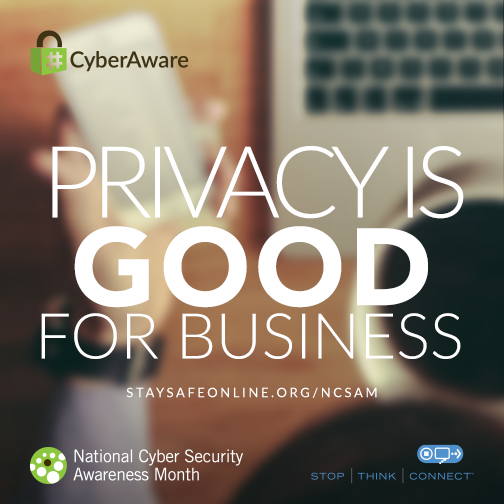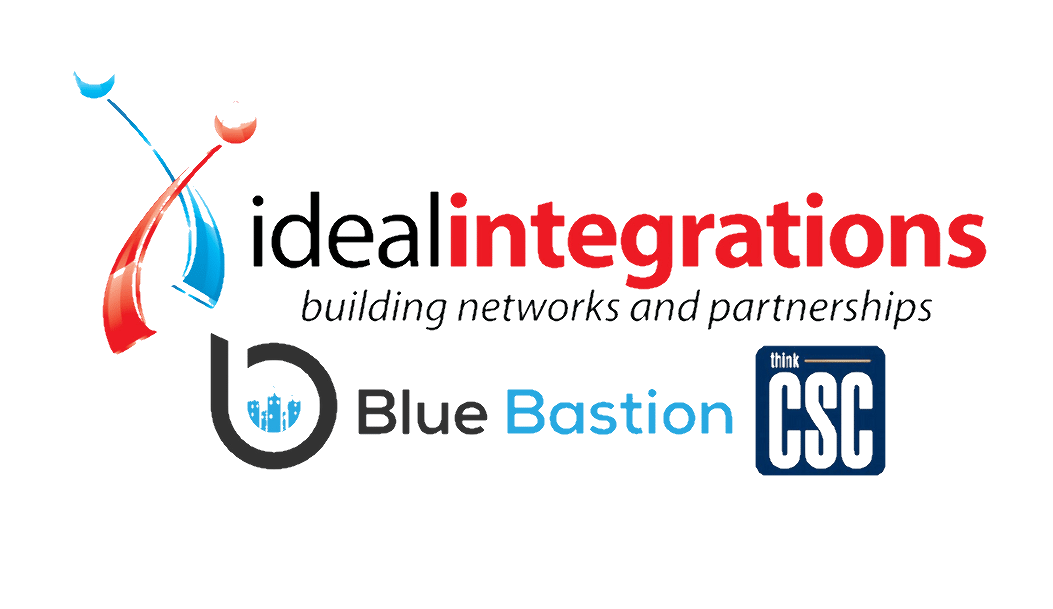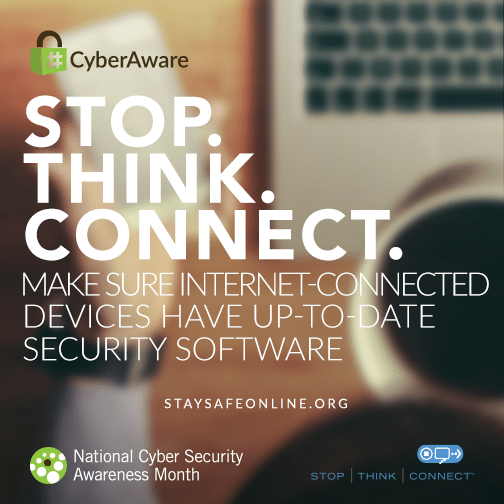
 October is Cybersecurity Awareness Month. In partnership with the Department of Homeland Security and the Stop.Think.Connect.™ campaign, we are encouraging every individual and business to step up their cybersecurity measures.
October is Cybersecurity Awareness Month. In partnership with the Department of Homeland Security and the Stop.Think.Connect.™ campaign, we are encouraging every individual and business to step up their cybersecurity measures.
Did You Know?
- The yearly cost of cybercrime per organization ranges from $1.3 million to $58 million.
- The cost of cybercrime increased 26 percent, or $2.6 million
- Cybersecurity is the prevention of damage to, unauthorized use of or exploitation of electronic information and communication systems, and the information contained therein.
- To understand the importance of cybersecurity, we first have to talk about the risks, threats, and vulnerabilities that exist online and their impact on a national and personal level.
- We need to know the who, what, when, where, why, and how of cyber risks to be able to understand and prevent incidents.
- Who: There are two types of actors that can cause harm to the Internet: malicious and benign actors. The difference is based on their intent. Malicious actors intend to cause harm, like cybercriminal organizations or hackers. Benign actors accidentally cause harm, such as an employee who accidentally downloads malware into their company’s network.
- What: Actors exploit vulnerabilities such as our inherent trust in other people, in the software that we use on a daily basis, and the technologies we use to perform daily functions.
- When: It is virtually impossible to predict when a cyber incident will occur.
- Where: A virtual environment, accessible via computer networks, where users communicate and share information. Often interchanged with the word “Internet,” cyberspace is the artificial realm created by, and accessible through, computer networks with the intended function of sharing information and facilitating communication. Unlike the physical world, cyberspace has no boundaries across air, land, sea or space.
- Why: Benign actors unintentionally and mostly unknowingly cause harm. On the other hand, malicious actors can have a range of motives, including money or credit, prestige, or revenge. Some malicious actors seek confidential information ranging from personal to national secrets.
- How: The methods actors use to cause the harm can range in sophistication and complexity from botnets to viruses.
Small businesses and sole proprietors may think that they are not targets for cyber incidents due to the perception that they do not have anything worth stealing. However, only a small percentage of cyber incidents are considered targeted attacks, meaning the attacker group is going after a particular company or group of companies in order to steal specific data. The majority of cybercriminals are indiscriminate; they target vulnerable computer systems regardless of whether they are part of a government agency, Fortune 500 Company, a small business, or belong to a home user. Securing cyberspace starts with you.
Lock down your login, protect yourself, and help keep the web a safer place for everyone. For more Stop.Think.Connect. programs and opportunities, please visit http://www.dhs.gov/stopthinkconnect.
To learn more about what your organization can do to become more cybersecure, contact thinkCSC.

